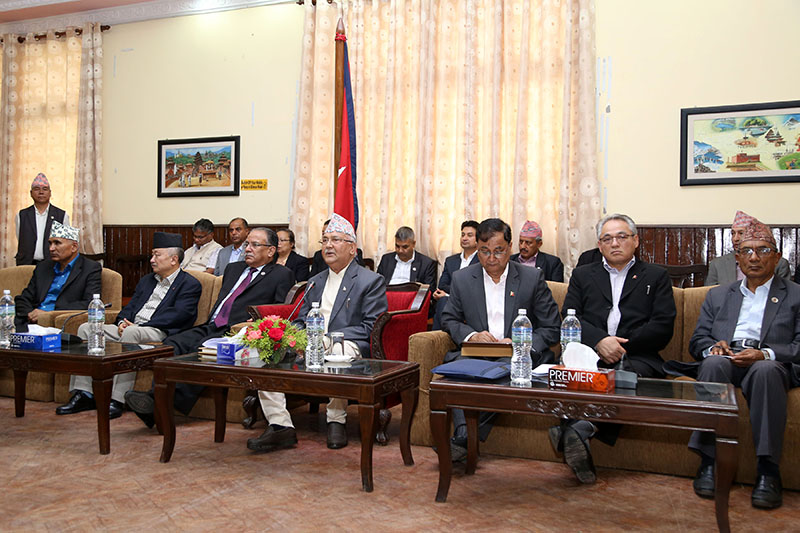NCP (NCP) to revise statute, regulation
Kathmandu, June 25
Nepal Communist Party (NCP) is planning to revise its interim statute and regulation amid complaints that the existing documents had failed to address grievances among leaders following the unification of the CPN-UML and the CPN-Maoist Centre.
The NCP will soon call a meeting of its standing committee to revise the interim statute and regulation, which was drafted by a taskforce led by General Secretary Bishnu Poudel. Presently, the party is collecting recommendations from various party bodies in the district, province and central levels and sister organisations. They have been asked to submit their recommendations by tomorrow.
“The interim statute and regulation will be revised and endorsed by the standing committee. There are some legal hurdles and technical issues,” NCP Standing Committee member Mani Thapa told THT. He said the regulation could not make the roles of central, provincial and districts committee members clear.
According to Thapa, the leadership and the number of committees to be formed in provinces and districts have not been finalised yet. “It is still not decided how the leadership of these committees are chosen, through election by lower committees or nomination by the central committee,” Thapa said. “The standing committee meeting will finalise these issues.”
Also, there are differences between the party leadership and chiefs of sister organisations over hierarchy. The district-level sister organisation chiefs are demanding that they be given the status of provincial party members, but the party leadership is for district-level members.
The existing statute has provisioned 75 to 125-member district committees, but Province 3 party leaders have recommended that the number should be increased to at least 125. They are of the view that number is not a big issue, but maintaining unity within the party is crucial. Likewise, they have also recommended increasing the number of provincial committee members.
The statute has also provisioned inclusion of central members in provincial committees, but the lower committees have said central members should not be included.






